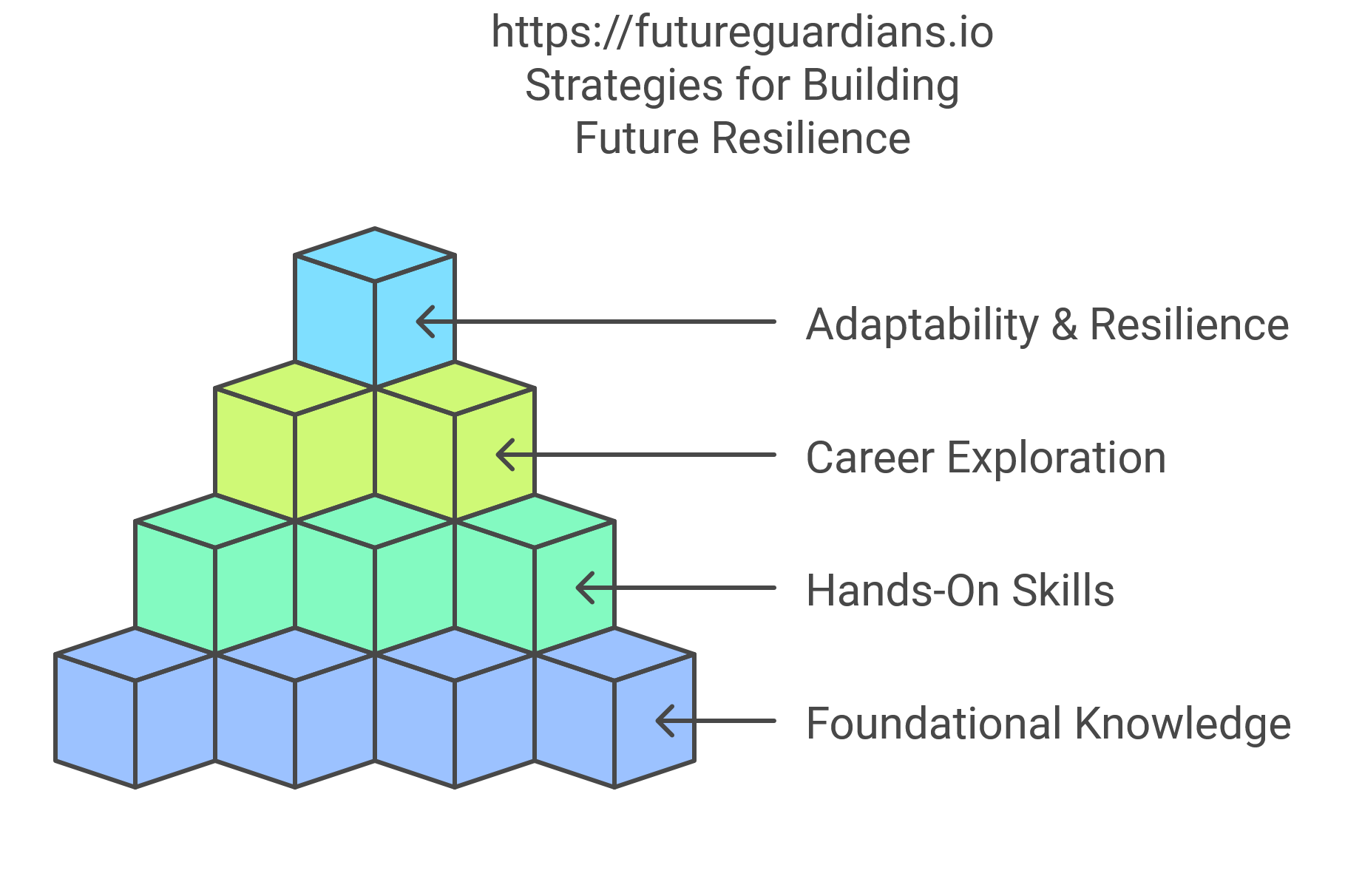In today’s volatile, rapidly shifting economy, traditional academic pathways, whileinvaluab le, are no longer guaranteed tickets to employability. Governments and educational bodies worldwide are accelerating efforts to incorporate vocational, technical, and alternati ve pathways into their national strategies. A recent BBC article underscores this move away from strictly theory-heavy schooling toward real-world, skills-focused learning.
1. Rapidly Changing Job Markets
- Automation & AI The World Economic Forum’s Future of Jobs Report indicates that emerging technologies, including AI and robotics, will create new roles requiring a blend of technical, creative, and interpersonal skills. At the same time, many existing jobs may be phased out due to automation.
- Industry Disruption Fields like cybersecurity, green energy, and advanced manufacturing are expanding so quickly that purely academic curricula often struggle to remain relevant. Flexibility and adaptable skills are, therefore, essential.
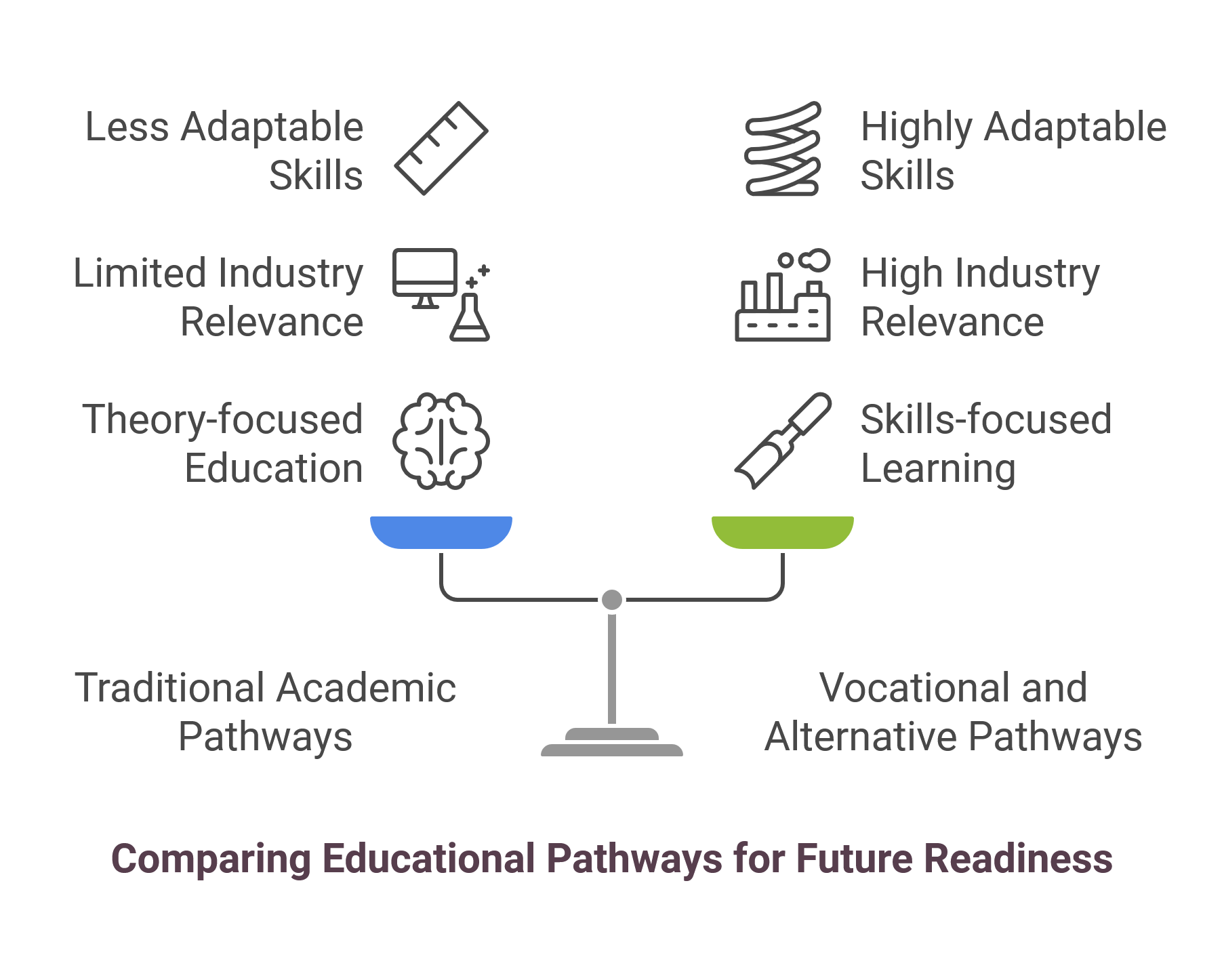
2. Global Initiatives
- UAE The National Strategy for Higher Education 2030 champions dual-education models, blending theoretical knowledge with hands-on skill-building.
- MENA Region Multiple countries are implementing UNESCO’s TVET (Technical and Vocational Education and Training) reforms to combat youth unemployment, emphasizing the value of practical skills for long-term career stability.
- USA The Perkins V legislation expands funding for Career and Technical Education (CTE), ensuring that high schools and community colleges can develop programs aligned with industry needs.
- UK The introduction of T-levels, the expansion of apprenticeships, and new BTEC (Business and Technology Education Council) strands highlight the ongoing move toward practical, industry-informed education.
- Canada The Youth Employment and Skills Strategy aims to seamlessly integrate vocational programs into secondary and post-secondary structures, addressing labor shortages and closing skills gaps.
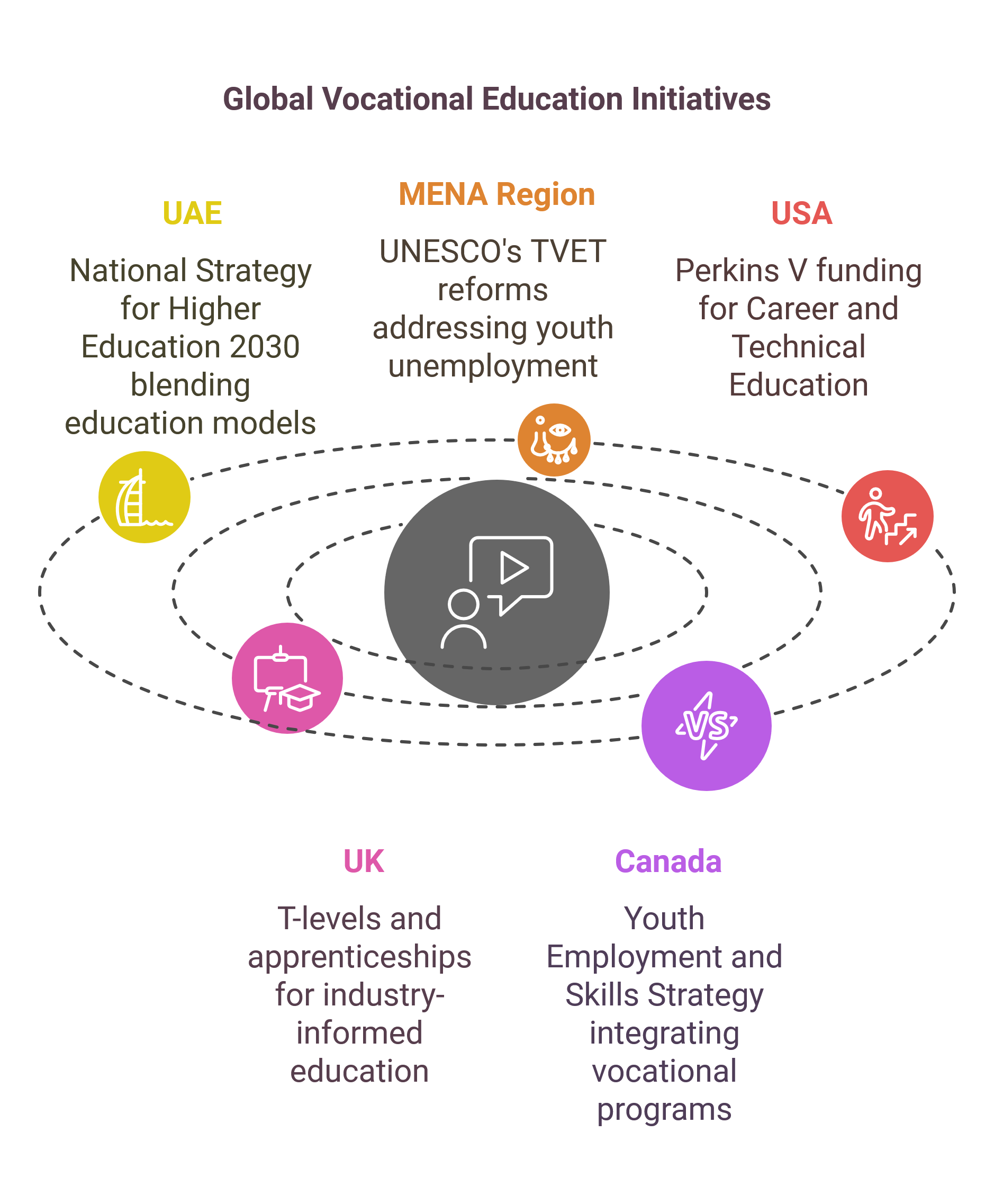
3. Regional Momentum: UAE TVET & Jordan’s BTECH
Across the Middle East, the drive for practical, skills-focused education is gaining momentum. In the UAE, the National Strategy for Higher Education 2030 makes TVET (Technical and Vocational Education and Training) a foundational element for bridging the gap between academic theory and the practical needs of tomorr ow’s industries. Meanwhile, Jordan is modernizing its Tawjihi (high secondary school exam) system through BTECH pathways, empowering students to acquire hands-on expertise in technology, business, and other emerging fields. These parallel initiatives underscore a regional commitment to revamping secondary educati on so that youth graduate equipped with the competitive, practice-oriented competencies in high demand by the global job market.
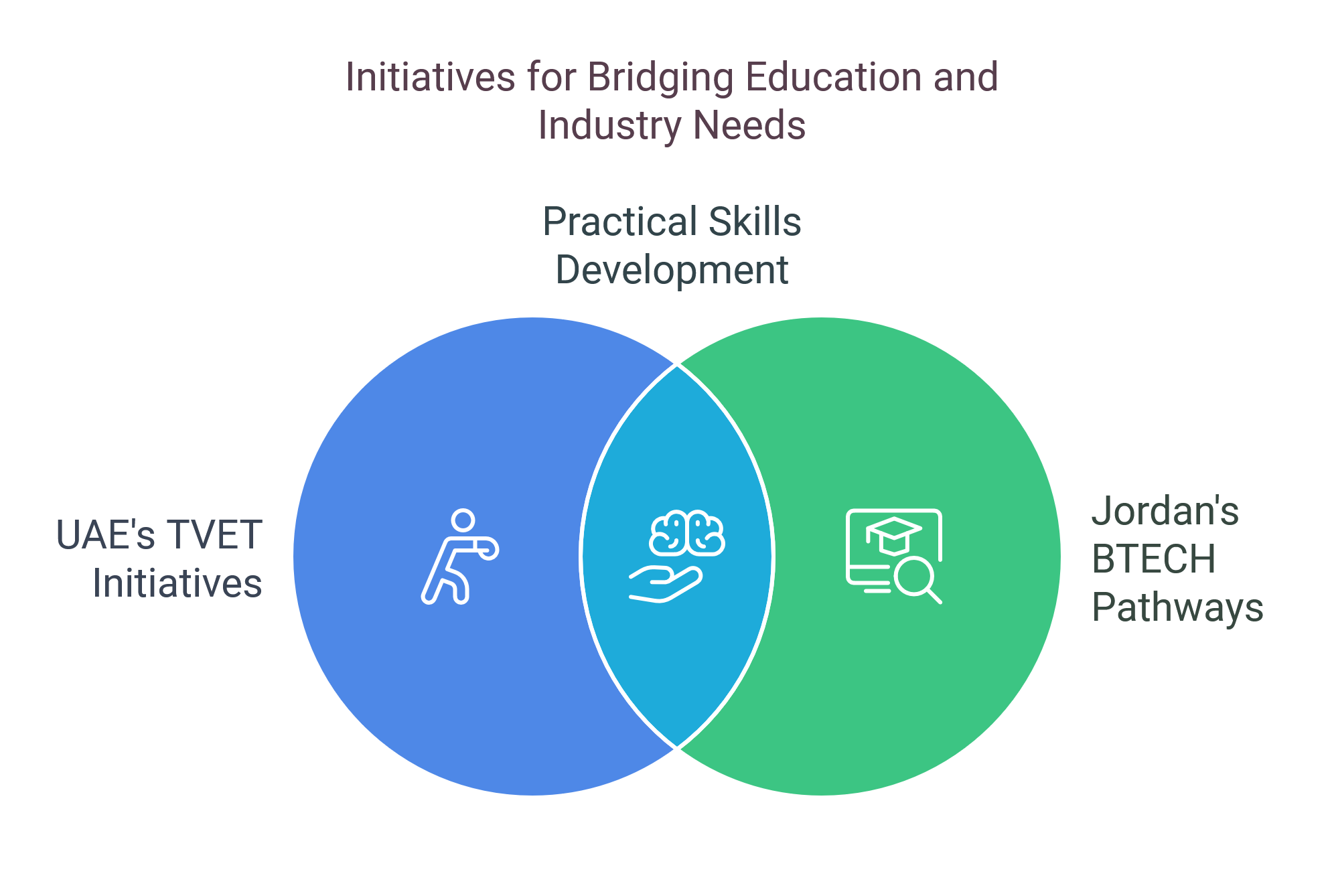
4. Growing Body of Evidence
- UNESCO-UNEVOC Research indicates that countries with robust vocational training systems often enj oy lower rates of youth unemployment.
- OECD Studies show that blending hands-on programs with academic subjects fosters resilience in rapi dly changing economies, ensuring graduates are better prepared for unforeseen labor market shifts.
- Press & Government Releases Official statements from bodies such as the UK’s Department for Ed ucation, Jordan’s Ministry of Education, and the UAE’s Ministry of Education consistently reinforce the message that holistic approaches—combining academic foundations with practical skill-building—are critical for future-proofing careers.
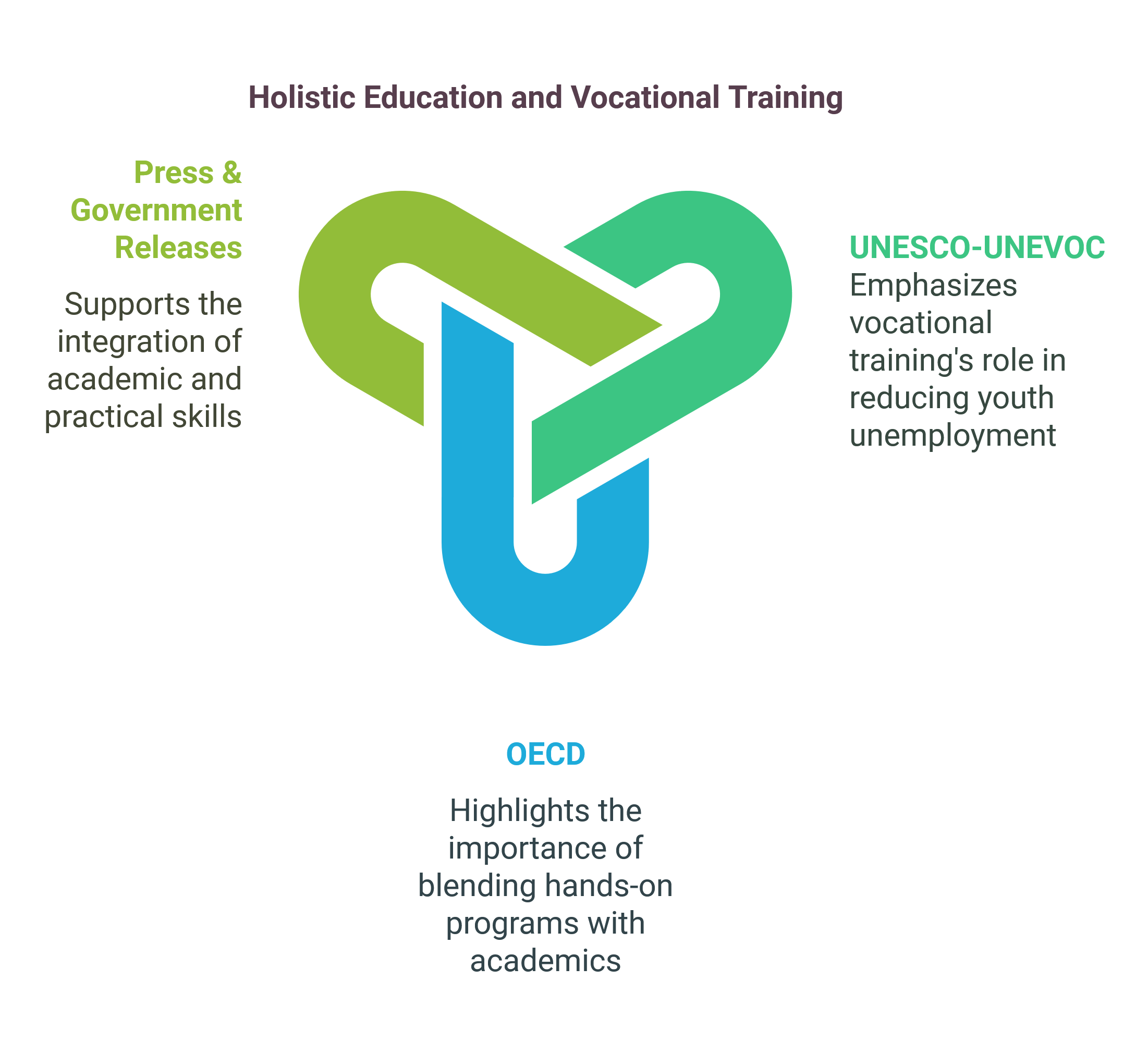
While high-school and college-level vocational programs are crucial, early exposure to real-world problem-so lving and career exploration can significantly enhance long-term success. During adolescence (ages 12–17), young people are in a formative phase, developing both self-awareness and key transferable skills. Programs like Future Guardians illustrate the power of early engagement. Through scenario-based training, character-building exercises, and guided decision-making,
1. Explore Diverse Fields From emerging technologies and finance to creativeindustries—teenagers discover a broader range of potential careers at a pivotal age.
2. Build Transferable Future-Skills Critical thinking, teamwork, leadership, and adaptability are cultivate d—traits that remain relevant across industries, even as job markets evolve.
3. Enhance Decision and Sense Making By grasping different pathways early on, students can make better-informed academic choices and confidently evaluate whether to pursue vocational routes, university degrees, or blended options.
Takeaway
While academic credentials remain invaluable, they are no longer sufficient on their own to guarantee professi onal success in an era defined by rapid technological and economic shifts. Whether through Jordan’s BTECH pathways, the UAE’s TVET strategies, or forward-thinking programs like Future Guardians, a clear takeaway emerges: hands-on skills, practical exposure, and early career exploration are the bedrock of future success. By proactively equipping our youth with both foundational knowledge and the agility to adapt, we not only secure their prospects but also strengthen our collective resilience in an ever-evolving global marketplace.

